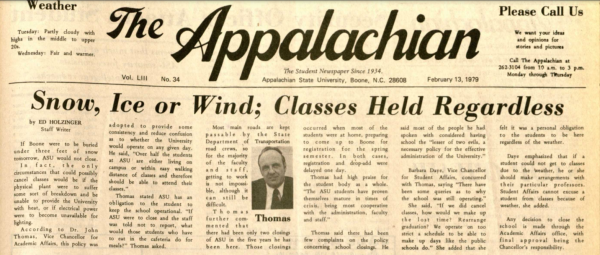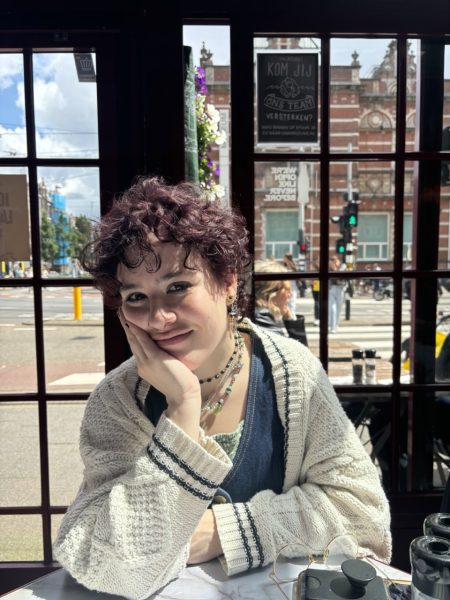Madalyn Edwards curated this story by Ed Holzinger, which The Appalachian published Feb. 13, 1979.
If Boone were to be buried under three feet of snow tomorrow, ASU would not close.
In fact, the only circumstances that could possibly cancel classes would be if the physical plant were to suffer some sort of breakdown and be unable to provide the University with heat, or if electrical power were to become unavailable for lighting.
According to Dr. John Thomas, Vice Chancellor for Academic Affairs, this policy was adopted to provide some consistency and reduce confusion as to whether the University would operate on any given day. He said, “Over half the students at ASU are either living on campus or within easy walking distance of classes and therefore should be able to attend their classes.”
Thomas stated ASU has an obligation to the student to keep the school operational. “If ASU were to close and the staff was told not to report, what would those students who have to eat in the cafeteria do for meals?” Thomas asked.
Most main roads are kept passable by the State Department of Transportation road crews, so for the majority of the faculty and staff, getting to work is not impossible, although it can still be difficult.
Thomas further commented that there had been only two closings of ASU in the five years he has been here. Those closings occurred when most of the students were at home, preparing to come up to Boone for registration for the spring semester. In both cases, registration and drop-add were delayed one day.
Thomas had high praise for the student body as a whole. “The ASU students have proven themselves mature in times of crisis, being most cooperative with the administration, faculty and staff.”
Thomas said there had been few complaints on the policy concerning school closings. He said most of the people he had spoken with considered having school the “lesser of two evils, a necessary policy for the effective administration of the University.”
Barbara Daye, Vice Chancellor for Student Affairs, concurred with Thomas, saying “There have been some queries as to why the school was still operating.”
She said, “If we did cancel classes, how would we make up the lost time? Rearrange graduation? We operate on too strict a schedule to be able to make up days like the public schools do.” She added that she felt it was a personal obligation to the students to be here regardless of the weather.
Daye emphasized that if a student could not get to classes due to the weather, he or she should make arrangements with their particular professors. Student Affairs cannot excuse a student from classes because of weather, she added.
Any decision to close the school is made through the Academic Affairs office, with final approval being the Chancellor’s responsibility.


